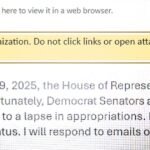Dealing with belittling behaviour is never easy. Whether it comes from a coworker, a partner, a friend, or even a family member, those sharp remarks and subtle put-downs can leave you feeling powerless. But here’s the truth—belittling says more about the person delivering it than about you. The key lies in how you respond. When you handle it with wisdom, calmness, and confidence, you protect your dignity and often disarm the person trying to tear you down.
This blog will guide you through powerful strategies for dealing with belittling behaviour, explain why it is important to address it, highlight the benefits of responding wisely, and provide practical examples you can use in real life.
How to Deal With Belittling Behaviour?
Belittling is designed to provoke a reaction, but reacting emotionally usually gives the other person exactly what they want—control. Instead, these methods help you stay in charge of yourself while putting the focus back where it belongs—on their behaviour.
1. Make Them Repeat It
When someone belittles you, one of the most surprising and effective responses is simply asking them to repeat what they said.
Example:
You’re in a meeting and someone mocks, “That’s a silly idea.”
Instead of getting defensive, calmly respond:
👉 “Can you say that again?”
Why this works:
- The belittler expects you to feel embarrassed or angry. By asking them to repeat it, you flip the script.
- Most people hesitate when confronted with their own words because they realise how unkind or unprofessional they sound.
- It denies them the satisfaction of seeing you upset.
When they hear their words again, many realise their behaviour is hollow.
As Mahatma Gandhi once said:
“Nobody can hurt me without my permission.”
2. Ask Questions of Intent
Another powerful tool in dealing with belittling behaviour is to ask direct but calm questions about intent. This shifts the spotlight from you to them.
Example Questions:
- “Did you say that to embarrass me?”
- “Were you trying to hurt me with that comment?”
- “Did you mean to dismiss my ideas?”
Why this works:
- It makes them reflect on their motives instead of leaving you on the defensive.
- It demonstrates emotional intelligence—you’re calm, not reactive.
- Often, the belittler will backtrack, apologise, or change their tone.
Story:
In a deposition training, an attorney taught his client to respond this way. When another lawyer made a snide remark, she asked, “Did you mean that to embarrass me?” The other attorney immediately backtracked. The power dynamic shifted in her favour—all because she stayed composed.
Quote to remember:
“When someone shows you who they are, believe them the first time.” – Maya Angelou
Intent questions expose true motives and prevent repeated disrespect.
3. Use the Power of Silence
Sometimes, the best response is no response at all.
The Power Of Silence: Simple Steps For Empowering Minds
Why silence works:
- Silence communicates strength.
- It shows that their words do not affect your self-worth.
- It makes their insult echo back on them without a target.
Example:
If someone sneers, “Not bad for your age,” just look at them calmly and stay silent. Your expression will speak louder than words.
Quote to reflect on:
“Silence is sometimes the best answer.” – Dalai Lama
Silence tells them: Your words don’t define me.
4. Stay Calm and Professional
Belittling often happens in public or professional spaces. Laughing it off or pretending it doesn’t matter only encourages the behaviour. Instead, remain calm and assertive.
Example:
If a colleague says, “That’s good—for someone like you,” you could respond:
👉 “I’d like you to clarify what you mean by that.”
This keeps the conversation professional, while making it clear you won’t tolerate disrespect.
Quote to live by:
“In the middle of difficulty lies opportunity.” – Albert Einstein
By staying calm, you turn a hurtful comment into an opportunity to show maturity.
Never Get Angry: How to Control Your Emotions and Protect Your Peace
5. Know When to Walk Away
If someone openly admits they intended to hurt or embarrass you, that’s a red flag. Protect your mental well-being by disengaging.
Why it matters:
- Some people thrive on negativity.
- Walking away demonstrates self-respect.
- You control your environment instead of letting toxicity linger.
Quote to inspire:
“Letting go gives us freedom, and freedom is the only condition for happiness.” – Thich Nhat Hanh
Not every battle is worth fighting—sometimes the strongest move is simply to step away.

The Importance of Dealing With Belittling Behaviour
Why should you address belittling instead of brushing it aside? Ignoring it often allows the behaviour to continue and worsen.
- Protects Your Self-Worth – Repeated belittling can chip away at your confidence. Addressing it shows you value yourself.
- Sets Boundaries – When you calmly respond, you make it clear what behaviour you will and will not accept. Polite Phrases For Setting Boundaries: How to Use Them Effectively
- Creates Respect – Others observing how you handle belittling often gain respect for your composure.
- Prevents Escalation – Early, calm responses stop disrespect before it becomes a habit.
As Eleanor Roosevelt wisely said:
“No one can make you feel inferior without your consent.”
Dealing with belittling behaviour isn’t just about stopping insults—it’s about protecting your dignity.
Never Belittle Anyone By Making Fun Of Their Weaknesses
The Benefits of Responding Wisely
Learning how to respond effectively to belittling behaviour offers lasting benefits:
- Emotional Strength – You build resilience and self-control.
- Better Communication – These strategies improve how you handle conflict in all relationships.
- Leadership Qualities – Calm, confident responses make you stand out as a leader at work and in life.
- Peace of Mind – You stop carrying others’ negativity with you.
Quote to end this section:
“The first and greatest victory is to conquer yourself; to be conquered by yourself is of all things most shameful and vile.” – Plato
How to Respond When Someone Belittles You?
Conclusion
Dealing with belittling behaviour requires calm strength, not aggression. By asking someone to repeat their words, questioning their intent, using silence, staying professional, and walking away when needed, you protect your self-respect and integrity. Remember—your worth is not defined by anyone’s insults.
The next time someone tries to belittle you, stand firm. Their words only hold power if you let them.
What strategies have you found most effective in dealing with belittling behaviour?
How do you plan to handle it differently moving forward?
FAQs About Dealing With Belittling Behaviour
1. What does belittling behaviour look like?
Belittling includes sarcastic remarks, mocking comparisons, dismissive comments, or subtle insults meant to make you feel small.
2. How should I respond if someone belittles me in public?
Stay calm. Ask them to repeat the comment or question their intent: “Did you say that to embarrass me?” This shows maturity.
3. Is silence a good response to belittling?
Yes. Silence often speaks louder than words. It denies the belittler the reaction they want and demonstrates strength.
4. How do I stop taking belittling personally?
Remember, their behaviour reflects their insecurity, not your value. Reframe it as their weakness, not your flaw.
5. What if belittling happens regularly at work?
Document incidents, set boundaries, and escalate to HR if necessary. Persistent belittling should not be tolerated in professional spaces.
Thank you for taking the time to explore this post. I hope you found it both insightful and enjoyable.
Remember, your sharing can make a positive impact! Please share this post across your social media and other networks, allowing others to benefit from its content.
PVM

Mathukutty P. V. is the founder of Simply Life Tips, a blogger, content writer, influencer, and YouTuber passionate about learning and sharing. Guided by “Simple Living, Creative Thinking,” he believes in the power of knowledge sharing and lifelong learning.
Related
Discover more from Simply Life Tips
Subscribe to get the latest posts sent to your email.







